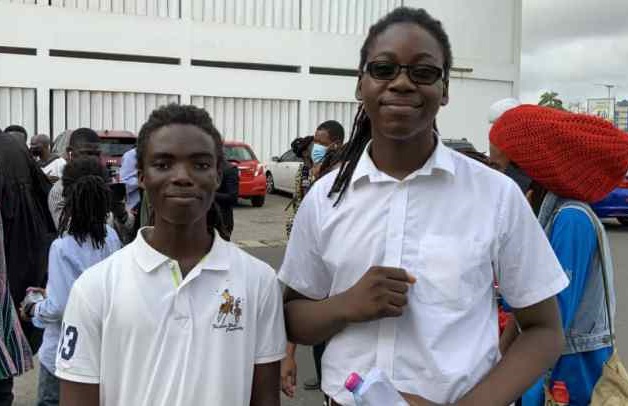Stand up for your belief – Achimota Rasta boys urge youth
It was an environment filled with resounding laughter, which meant a great feat for the two students with dreadlocks and the Rastafarian community.
As supporters and well-wishers sang and danced to Bob Marley’s Redemption Song, Tyrone Marghuy stood at the centre, still reminiscing all that had happened.
“I feel wonderful that this matter has come to an end. Now, I don’t have to look over my shoulders. I can go to Achimota with a smile on my face. It’s all over.
“At a point, I thought that Achimota School was not for me. I probably should have chosen another school to avoid these hurdles, although I had aggregate six.
“My friends were like, why don’t I just cut my hair or choose another school,” he recounted to theghanareport.com after court proceedings.
Tyrone Marghuy, a triplet, believes religion should never be a basis of discrimination.
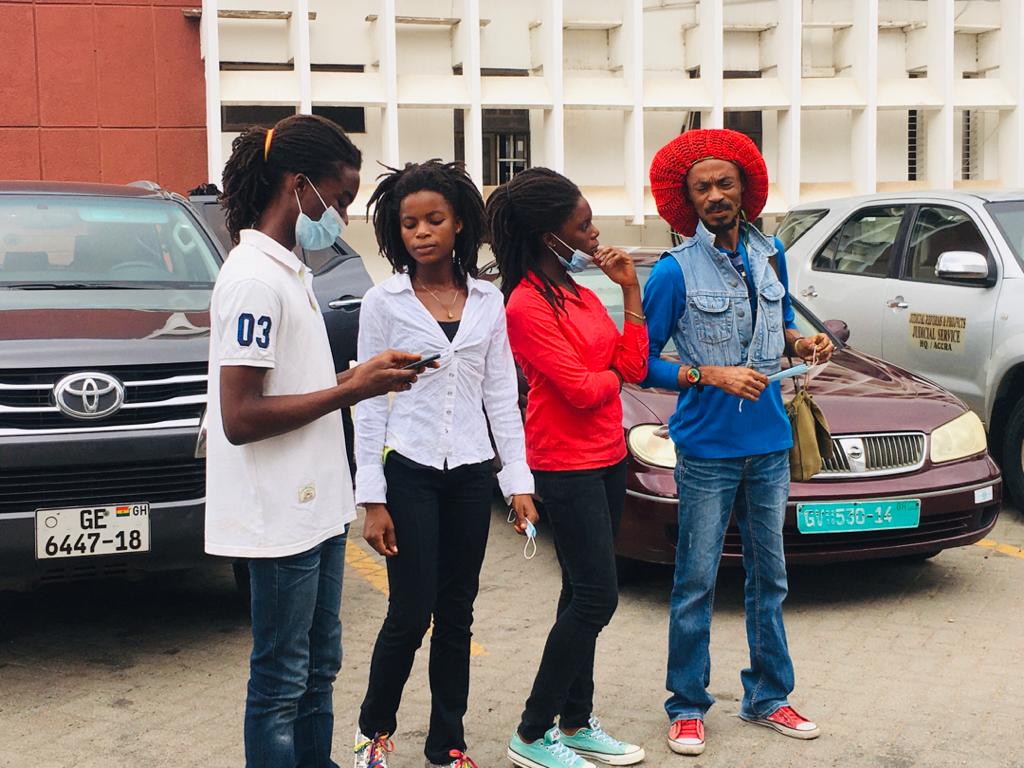
He pointed out that no provision on the BECE paper required you to select which religion you belonged to before the exams.
Tyrone urged students to see the court victory as a win for all and not just him.
“Monday’s ruling should encourage students to be bold and stand up for what they believe in. They always need to do what is right, learn to be excellent and stand out. Once you have the grades, nobody can intimidate you,” he added.
Oheneba Nkrabea appeared grinning cheerfully.
Although Nkrabea said he was anxious, he hoped that the ruling would go in his favour since the court had already directed Achimota School to admit Tyrone.
The Accra High Court had read the ruling in two parts.
The judge, Gifty Adjei Addo, insisted that though similar in nature, the two suits were unique and needed no consolidation.
Tyrone first heard the good news, giving Nkrabea the green light to rejoice ahead of the judge’s ruling to his suit.
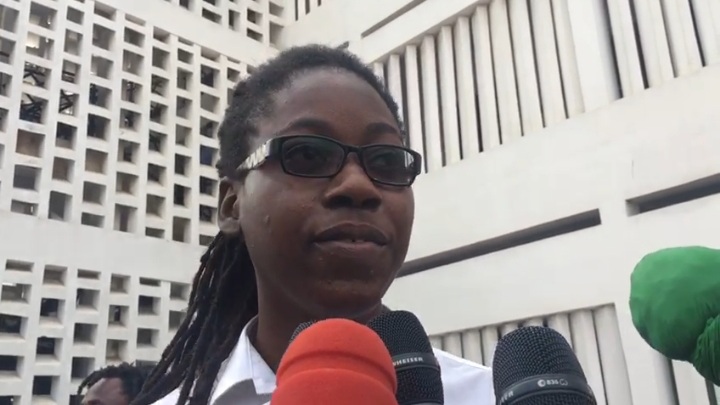
After the ruling, Nkrabea told theghanareport.com that he has always been ready to join his colleagues in school.
“As you can see, I am already in my uniform to show how eager I am to start school. The first thing I will do is to take a picture and say, hey, I am in Achimota School,” he said.
Nkrabea said he almost gave up.
He was influenced by public commentary on bribery of judges and lawyers in the country.
“I lost hope at a point because we hear news of corruption and judges being bribed and all that, so I was surprised the ruling went in our favour,” he revealed.
He also had a word of advice for Achimota School.
“They shouldn’t judge people by their looks or appearances because you don’t know what the person can become.”
Both students have promised to be of good behaviour and not take glory in the fact that they won the case to go against the school rules.
Court’s ruling
In her ruling on Monday, May 31, the judge, Gifty Adjei Addo, said the failure to admit the applicants because of their dreadlocks, which is a manifestation of their religious right, violates their human rights to education and dignity.
“What has the wearing of dreadlocks which is a manifestation of one’s religious rights, got to do with upholding the discipline in the school?” she quizzed.
It was the judge’s view that for the school to maintain that a person must cut their dreadlocks before they are admitted is against the 1992 constitution.
“I reject the argument of the respondents that upholding the reliefs of the applicant will discriminate against other students who abide by the rules of the school.
“Fundamental human rights are not absolute and can be limited by statutes and policies, but this must be juxtaposed with the public interest as in this current case.
“What reasonable justification has been put before the court in the implementation of school rules to convince the court to rule in favour of the respondents,” she noted.
The judge pointed that the ultimate aim of the school rules is to enhance discipline and academic excellence.
She, therefore, wondered how keeping the dreadlocks was going affect the school community regarding the two disciplines.
“How keeping low hair enhances hygiene in the school has not been expressed in this court and how the applicant keeping his dreadlocks would affect his health and the health of other students,” she reiterated.
Arguments before judge’s ruling
- Prosecution’s submission
Counsel for the Board of Governors of the Achimota School, Attorney General Godfred Dame, argued that the applicant had no cause of action.
According to him, nothing within the scope of his right to education and religion had been infringed upon, as suggested by the applicant.
- Defense counsels argument
On the other hand, counsel for the rejected student, James Gawuga Nkrumah, insisted that his client’s rights had been denied.
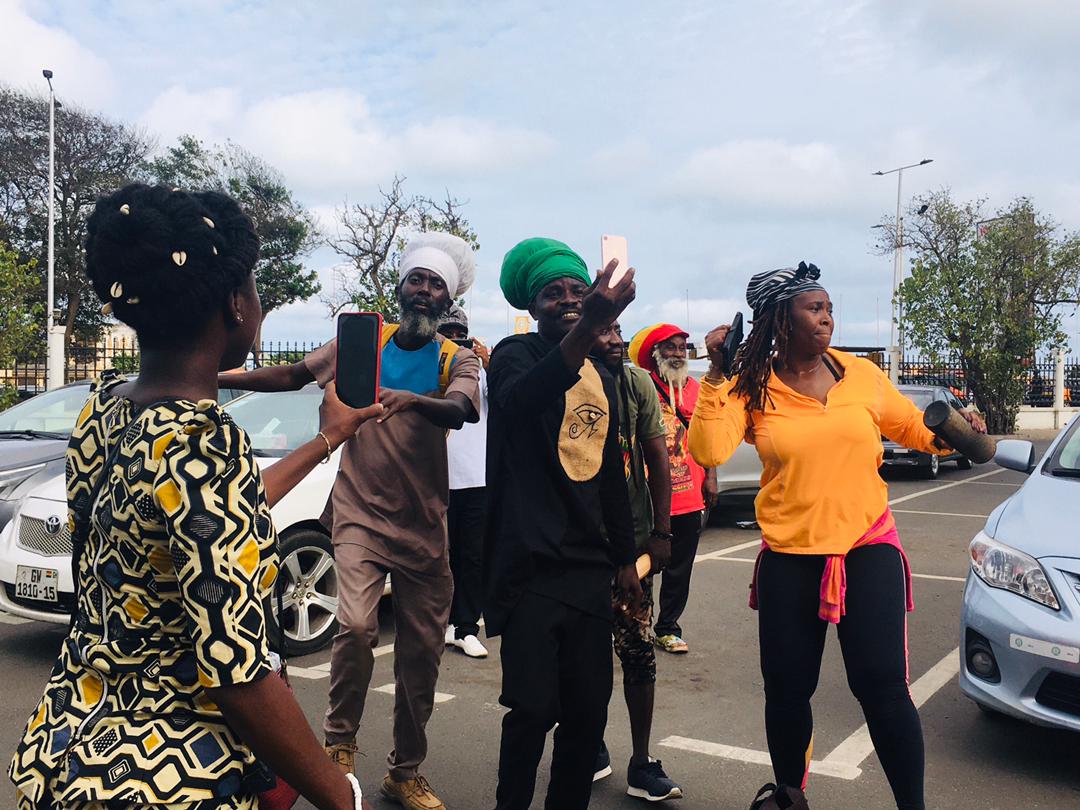
He said there was no lawful basis for Achimota School to interfere with the applicant’s right to education based on his ‘rasta’. Per his argument, the applicant expresses his constitutionally guaranteed right to religion.
The suit filed by both parties challenged the Achimota School for refusing to admit the two students.
The application sought an order directed at Achimota School to enrol the students immediately.
Also, a compensation for the “inconvenience, embarrassment, waste of time, and violation of his fundamental human right and freedom”.
Counsel for one of the Rastafarian students Wayo Ghanamaniti, who expressed his excitement, said the judge’s ruling is historical.
“This judge, Gifty Adjei Addo, has written her name in the legendary status. Her name is now written in gold. She now ranks with Eleanor Roosevelt, the architect of the universal declaration of human rights,” he said excitedly.
Asked when the students intend to go back to school, he replied, “tomorrow, as you can see, Oheneba Nkrabea is already in his uniform”.
But the father of one of the boys, Ras Aswad Nkrabea, said although he was happy with the ruling, he would sit with his family to deliberate on the way forward.
The students who were in the spotlight for the entire trial said the ruling had paved the way for other students whose rights may be infringed upon to speak up.
How it all started
A parent of one of the affected students, Ras Aswad Nkrabea, took to social media to express his frustration over the development.
“The school authorities denied two brilliant dreadlocked students from being admitted after being posted there by the Computer School Placement System.
“My son was one of the affected children, and the other student was also refused on the same grounds,” the disappointed father narrated in a Facebook post.
This generated a public uproar, with a section of Ghanaians calling out the school for discriminating against the students.
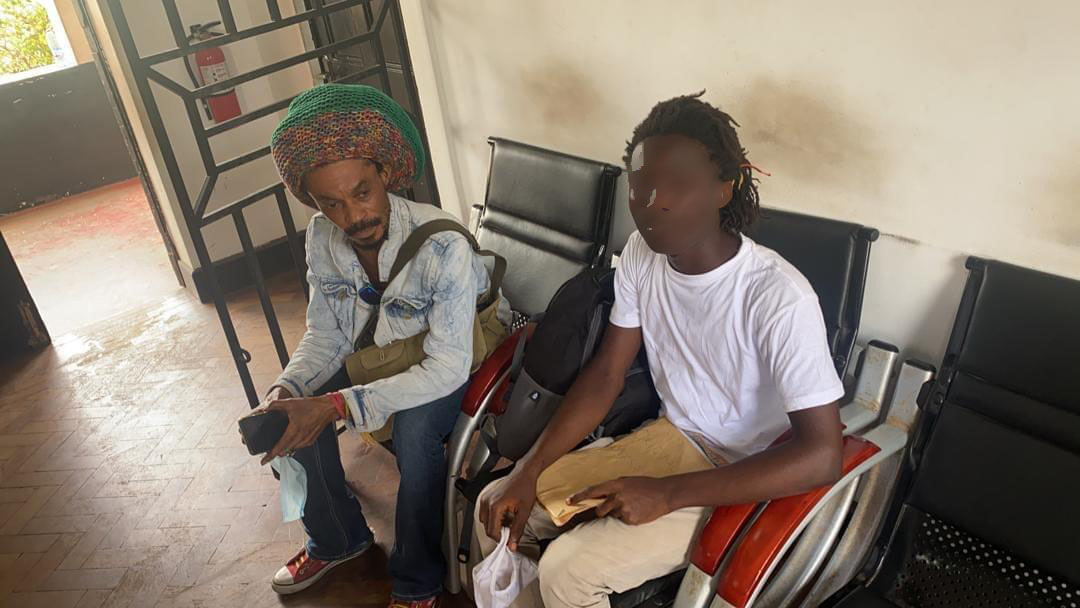
Breach of Right to Education
The development sparked public outrage on social media, with a section of the public condemning the actions of the authorities at Achimota School.
The Executive Director of the Africa Education Watch, Kofi Asare, vehemently condemned the decision of the school to deny the Rastafarian students admission.
Article 25 of the 1992 Constitution of Ghana establishes the right of the Ghanaian citizenry to have access to equal educational opportunities and facilities.
Mr Asare pointed out that the authorities at Achimota School have breached this provision of the constitution.
“The issue of education being a right is explicit in Article 25 of the 1992 Constitution… Section 3 and 8 of Act 560 explicitly states that no person shall discriminate against a child on the grounds of Religion and Custom.
“And in section A, the same Act provides that no person shall deprive the child of access to education. Based on Article 25 of our constitution and its attendant regulations in the Children’s Act, no agency in this country has the right to deprive a child of the right to education.
“They’re wrong. I’m not the one saying they’re wrong. The Act of Parliament, Act 560, Section A is saying they’re wrong because they have discriminated against the child and denied the child his right to education,” Mr Asare said in an earlier interview.
It is almost an annual ordeal for Rastafarian families to be denied admission into second cycle institutions due to their dreadlocks.
Kofi Asare charged the Rastafarian Council of Ghana to go to court to end their frustrations.
Previous incident
The practice of school authorities turning away Ghanaian students with dreadlocks is an old one.
In September 2017, a teenager was denied admission into Accra Girls Senior High School because she had dreadlocks.
According to the father, his daughter is a Rastafarian, and it was against their religion to cut off the locks.
The distraught father said efforts to explain issues to school authorities proved futile.
He was convinced the school’s decision to deny his daughter admission is borne out of ignorance.



